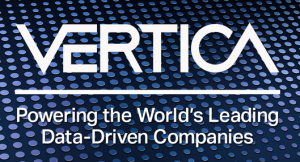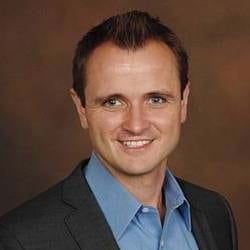Full Machine Learning Week 8-Track Agenda 2020 – Detailed Session Descriptions
Predictive Analytics World
May 31-June 4, 2020 – Caesars Palace, Las Vegas
This page shows the full 8-track agenda for the five co-located conferences at Machine Learning Week. A Machine Learning Week Ticket is required for full access. To view the agenda for one individual conference, click here: PAW Business, PAW Financial, PAW Healthcare, PAW Industry 4.0, or Deep Learning World.
Session Levels:
Blue circle sessions are for All Levels
Red triangle sessions are Expert/Practitioner Level
A veteran applying deep learning at the likes of Apple, Bosch, GE, Microsoft, Samsung, and Stanford, Mohammad Shokoohi-Yekta kicks off Machine Learning Week 2020 by addressing these Big Questions about deep learning and where it's headed:
- Late-breaking developments applying deep learning in retail, financial services, healthcare, IoT, and autonomous and semi-autonomous vehicles-
- Why time series data is The New Big Data and how deep learning leverages this booming, fundamental source of data-
- What's coming next and whether deep learning is destined to replace traditional machine learning methods and render them outdated
A veteran applying deep learning at the likes of Apple, Bosch, GE, Microsoft, Samsung, and Stanford, Mohammad Shokoohi-Yekta kicks off Machine Learning Week 2020 by addressing these Big Questions about deep learning and where it's headed:
- Late-breaking developments applying deep learning in retail, financial services, healthcare, IoT, and autonomous and semi-autonomous vehicles
- Why time series data is The New Big Data and how deep learning leverages this booming, fundamental source of data-
- What's coming next and whether deep learning is destined to replace traditional machine learning methods and render them outdated
A veteran applying deep learning at the likes of Apple, Bosch, GE, Microsoft, Samsung, and Stanford, Mohammad Shokoohi-Yekta kicks off Machine Learning Week 2020 by addressing these Big Questions about deep learning and where it's headed:
- Late-breaking developments applying deep learning in retail, financial services, healthcare, IoT, and autonomous and semi-autonomous vehicles
- Why time series data is The New Big Data and how deep learning leverages this booming, fundamental source of data
- What's coming next and whether deep learning is destined to replace traditional machine learning methods and render them outdated
A veteran applying deep learning at the likes of Apple, Bosch, GE, Microsoft, Samsung, and Stanford, Mohammad Shokoohi-Yekta kicks off Machine Learning Week 2020 by addressing these Big Questions about deep learning and where it's headed:
- Late-breaking developments applying deep learning in retail, financial services, healthcare, IoT, and autonomous and semi-autonomous vehicles
- Why time series data is The New Big Data and how deep learning leverages this booming, fundamental source of data
- What's coming next and whether deep learning is destined to replace traditional machine learning methods and render them outdated
A veteran applying deep learning at the likes of Apple, Bosch, GE, Microsoft, Samsung, and Stanford, Mohammad Shokoohi-Yekta kicks off Machine Learning Week 2020 by addressing these Big Questions about deep learning and where it's headed:
- Late-breaking developments applying deep learning in retail, financial services, healthcare, IoT, and autonomous and semi-autonomous vehicles
- Why time series data is The New Big Data and how deep learning leverages this booming, fundamental source of data
- What's coming next and whether deep learning is destined to replace traditional machine learning methods and render them outdated
As principles purporting to guide the ethical development of Artificial Intelligence proliferate, there are questions on what they actually mean in practice. How are they interpreted? How are they applied? How can engineers and product managers be expected to grapple with questions that have puzzled philosophers since the dawn of civilization, like how to create more equitable and fair outcomes for everyone, and how to understand the impact on society of tools and technologies that haven't even been created yet. To help us understand how Google is wrestling with these questions and more, Jen Gennai, Head of Responsible Innovation at Google, will run through past, present and future learnings and challenges related to the creation and adoption of Google's AI Principles.
As principles purporting to guide the ethical development of Artificial Intelligence proliferate, there are questions on what they actually mean in practice. How are they interpreted? How are they applied? How can engineers and product managers be expected to grapple with questions that have puzzled philosophers since the dawn of civilization, like how to create more equitable and fair outcomes for everyone, and how to understand the impact on society of tools and technologies that haven't even been created yet. To help us understand how Google is wrestling with these questions and more, Jen Gennai, Head of Responsible Innovation at Google, will run through past, present and future learnings and challenges related to the creation and adoption of Google's AI Principles.
As principles purporting to guide the ethical development of Artificial Intelligence proliferate, there are questions on what they actually mean in practice. How are they interpreted? How are they applied? How can engineers and product managers be expected to grapple with questions that have puzzled philosophers since the dawn of civilization, like how to create more equitable and fair outcomes for everyone, and how to understand the impact on society of tools and technologies that haven't even been created yet. To help us understand how Google is wrestling with these questions and more, Jen Gennai, Head of Responsible Innovation at Google, will run through past, present and future learnings and challenges related to the creation and adoption of Google's AI Principles.
As principles purporting to guide the ethical development of Artificial Intelligence proliferate, there are questions on what they actually mean in practice. How are they interpreted? How are they applied? How can engineers and product managers be expected to grapple with questions that have puzzled philosophers since the dawn of civilization, like how to create more equitable and fair outcomes for everyone, and how to understand the impact on society of tools and technologies that haven't even been created yet. To help us understand how Google is wrestling with these questions and more, Jen Gennai, Head of Responsible Innovation at Google, will run through past, present and future learnings and challenges related to the creation and adoption of Google's AI Principles.
As principles purporting to guide the ethical development of Artificial Intelligence proliferate, there are questions on what they actually mean in practice. How are they interpreted? How are they applied? How can engineers and product managers be expected to grapple with questions that have puzzled philosophers since the dawn of civilization, like how to create more equitable and fair outcomes for everyone, and how to understand the impact on society of tools and technologies that haven't even been created yet. To help us understand how Google is wrestling with these questions and more, Jen Gennai, Head of Responsible Innovation at Google, will run through past, present and future learnings and challenges related to the creation and adoption of Google's AI Principles.
As the economy continues its uncertain path, businesses have to expand reliance on data to make sound decisions that directly impact the business - from managing cash flow to planning product promotion strategies, the use of data is at the heart of mitigating the risks of a recession as well as planning for a recovery. Predictive Analytics, powered by Artificial Intelligence (AI) & Machine Learning (ML), has always been at the forefront of using data for planning. Still, most companies struggle with the techniques, tools, and with lack of resources needed to develop and deploy predictive analytics in meaningful ways. Join dotData CEO, Ryohei Fujimaki to learn how automation can help Business Intelligence teams develop and add AI and ML-powered technologies to their BI stack through AutoML 2.0, and how organizations of all sizes can solve the predictive analytics challenge in just days without adding additional resources or expertise.
As the economy continues its uncertain path, businesses have to expand reliance on data to make sound decisions that directly impact the business - from managing cash flow to planning product promotion strategies, the use of data is at the heart of mitigating the risks of a recession as well as planning for a recovery. Predictive Analytics, powered by Artificial Intelligence (AI) & Machine Learning (ML), has always been at the forefront of using data for planning. Still, most companies struggle with the techniques, tools, and with lack of resources needed to develop and deploy predictive analytics in meaningful ways. Join dotData CEO, Ryohei Fujimaki to learn how automation can help Business Intelligence teams develop and add AI and ML-powered technologies to their BI stack through AutoML 2.0, and how organizations of all sizes can solve the predictive analytics challenge in just days without adding additional resources or expertise
As the economy continues its uncertain path, businesses have to expand reliance on data to make sound decisions that directly impact the business - from managing cash flow to planning product promotion strategies, the use of data is at the heart of mitigating the risks of a recession as well as planning for a recovery. Predictive Analytics, powered by Artificial Intelligence (AI) & Machine Learning (ML), has always been at the forefront of using data for planning. Still, most companies struggle with the techniques, tools, and with lack of resources needed to develop and deploy predictive analytics in meaningful ways. Join dotData CEO, Ryohei Fujimaki to learn how automation can help Business Intelligence teams develop and add AI and ML-powered technologies to their BI stack through AutoML 2.0, and how organizations of all sizes can solve the predictive analytics challenge in just days without adding additional resources or expertise.
As the economy continues its uncertain path, businesses have to expand reliance on data to make sound decisions that directly impact the business - from managing cash flow to planning product promotion strategies, the use of data is at the heart of mitigating the risks of a recession as well as planning for a recovery. Predictive Analytics, powered by Artificial Intelligence (AI) & Machine Learning (ML), has always been at the forefront of using data for planning. Still, most companies struggle with the techniques, tools, and with lack of resources needed to develop and deploy predictive analytics in meaningful ways. Join dotData CEO, Ryohei Fujimaki to learn how automation can help Business Intelligence teams develop and add AI and ML-powered technologies to their BI stack through AutoML 2.0, and how organizations of all sizes can solve the predictive analytics challenge in just days without adding additional resources or expertise
As the economy continues its uncertain path, businesses have to expand reliance on data to make sound decisions that directly impact the business - from managing cash flow to planning product promotion strategies, the use of data is at the heart of mitigating the risks of a recession as well as planning for a recovery. Predictive Analytics, powered by Artificial Intelligence (AI) & Machine Learning (ML), has always been at the forefront of using data for planning. Still, most companies struggle with the techniques, tools, and with lack of resources needed to develop and deploy predictive analytics in meaningful ways. Join dotData CEO, Ryohei Fujimaki to learn how automation can help Business Intelligence teams develop and add AI and ML-powered technologies to their BI stack through AutoML 2.0, and how organizations of all sizes can solve the predictive analytics challenge in just days without adding additional resources or expertise.
Track Co-Chair: James Taylor
9:30 am - 9:50 am
Digital decisioning operationalizes machine learning and artificial intelligence so your systems act intelligently on your behalf, making precise, consistent, real-time decisions at every touch point. Digital decisioning applies machine learning and artificial intelligence at scale to automate the decisions essential for more profitable, more customer-centric, and more digital business operations.
In this session, thought leader James Taylor will outline a proven approach to digital decisioning, by which large, established companies gain value from machine learning. He'll cover examples of large, established companies succeeding with digital decisioning to illustrate the key principles of the approach. Whether you are using machine learning to drive operational efficiency, improve customer satisfaction, manage risk, or reduce fraud, digital decisioning will help you succeed.
Track 1: BUSINESS - Operationalization, management and best practices
Track Co-Chair: James Taylor
9:55 am - 10:15 am
In a climate where 85% of data science projects fail, moving beyond the hype into the plateau of productivity necessitates understanding what differentiates successful from unsuccessful analytics initiatives. This talk takes an inside-out view of how analytics-driven organizations operate differently and provides insight into how you as a leader can harness their best practices.
As predictive modelers, we love advanced machine learning techniques such as neural networks, deep learning networks, and decision tree ensembles because the accuracy they can achieve can be significantly better than linear methods, such as linear and logistic regression. However, these methods do not offer the advantages of linear methods for model interpretation and diagnostics. Which variables are the most important in the model? How stable are the model parameters? How stable are the model predictions?
This talk will describe the use of random permutation to uncover and describe model input and model prediction sensitivities. Techniques such as Breiman’s “permutation importance” and the use of bootstrap sampling to uncover sensitivities will be discussed and will be applied to models built from data drawn from customer analytics.
9:30 am - 9:50 am
In this talk, we will explore production level machine learning application at Facebook scale and the lessons learnt in developing and deploying ML applications across Ranking & Recommendation, Computer Vision, and NLP domains.
We will learn the challenges across Data, Feature processing, Model training and serving at Facebook scale. The privacy and security implication and the continious integration / continious deployment consideration for ML applications.
Track 3 - CASE STUDIES - Cross-industry business applications of machine learning
9:55 am - 10:15 am
Machine Learning is emerging as a key enabler in building next generation products. Machine learning accelerates the product lifecycle. In this session, Walmart eCommerce's Director of Product Management Kunal Desai will explore two case studies, one where machine learning helped identify customer problems and the other where it helped scale a product from 1 to 100.
9:30 am - 9:50 am
For years, the insurance industry has been using predicative analytics to identify individual claims that have a high potential for severity so adjusters can manage those claims more strategically. If we embrace a new and innovative severity-based analytic model to assess and assign all claims at the outset, we can more effectively fuse predictive modeling and expertise. This will require us to change our approach to adjuster caseloads. The result, however, will be a more efficient allocation of claims resources and the ability to reduce the total cost of risk for clients across an entire book of claims.
9:55 am - 10:15 am
Understanding risk is a core necessity for any insurer and reinsurer. The dynamically shifting risk landscape with new risks emerging and new regulatory requirements coming into place demands flexible solutions to efficiently steer business, price risks and allocate capital. Swiss Re has developed over the last years a broad range of predictive algorithms to understand risks. These new models have generated on the one hands improvements with respect to traditional models as well as they allow to insure risks that previously were thought to be uninsurable. In this session we will deep-dive into two concrete risk prediction models used to better identify risks in motor insurance as well as in travel insurance.
Mike will address the topic of the observed effect of the COVID-19 public policies that have reduced the mobility of countries around the world. With global mobility data joined to case data he will quantify when and by how much the lock-downs have mitigated the spread of this novel disease. The original rationale for social distancing was to mitigate peak loads on health care service delivery and buy time for the development of treatments. While the early reductions in mobility had some of their intended effect, the evidence of mitigating the COVID-19 spread shortly before and then beyond the peak has dropped to zero. The drivers of this phenomenon and public health policy implications will be discussed.
One of, if not THE, biggest impediments to Industrial firms realizing the efficiencies promised by "Industry 4.0" remains the access to quality, (near) real-time data. Ignoring the Purdue model, industrial firms should utilize cutting-edge cyber security tools to connect critical assets directly with professionals having the skills necessary to deploy advanced analytics solutions, optimizing machines and processes. Terry Miller, from Siemens, will evaluate a case study utilizing this architecture to capture and predict valve "stiction" in a Wastewater treatment plant flow loop.
At Standard Cognition we are solving the problem of automated scene understanding for cashierless checkout. Building and maintaining machine learning systems that can be deployed to hundreds of stores poses many machine learning and engineering challenges.
While many canonical problems in the deep learning literature have focused on solutions that are comprised of a single network or an ensemble of networks for a fixed dataset, a production system may have multiple, modular models that cascade into each other and are trained and evaluated on moving datasets. Such systems of modular deep neural networks have advantages in sample complexity, development scalability through division of labor, and deployment scalability through reusable and testable intermediate outputs, but come at the cost of managing additional complexity.
Through ensuring reproducible and shareable data-dependent state, we improve our ability to make continuous progress in arbitrarily complex multi-model systems, especially as Standard Cognition scales in number of developers and amount of data.
10:25 am - 10:45 am
Lack of trust in artificial intelligence / machine learning is pervasive throughout society. And the greatest areas of distrust are associated with AI’s potential impact on jobs. This lack of trust contributes to the under-utilization of collaborative AI systems and severely reduces their possible benefits. In this talk, Clayton discusses how to develop and launch AI systems to ensure that knowledge workers trust and ultimately use the system’s insights and recommendations.
Track 1 - BUSINESS - Operationalization, management and best practices
10:50 am - 11:10 am
Success stories abound that extoll the use of machine learning and analytics in a wide variety of fields and on a wide swath of problems. But there are valuable lessons to be learned from what didn't work, whether a spectacular failure or just bumps in the road. In this talk, we describe real-world examples, some anonymous and most from the speaker's decades of analytical consulting. We will describe pitfalls, misconceptions, and uncertainties commonly encountered by companies in their path towards adoption of analytics that led to failure, lost time, and wasted investment.
Optimizing product features, promotion campaigns, and machine learning model hyperparameters is advantageous because effective configurations can improve outcomes, such as engagement, performance, and quality. However, it is often challenging to identify superior configurations because the space of possible configurations is vast, and the resources available for searching the space is limited. This talk introduces Ax, an open source platform for optimizing experiments using multi-armed bandit and Bayesian optimization, including how it has been successfully applied to a variety of product, infrastructure, and ML applications. By automating the process of identifying effective configurations via adaptive experiments, Ax enables product managers, developers, and analysts to efficiently get the most out of their software.
Also sign up for Clinton Brownley's workshop: Machine Learning with Python: A Hands-On Introduction
10:25 am - 10:45 am
All retailers want to know their target buyers better. However, understanding the past and present of their interactions simply isn’t enough these days and predictive analytics is the next step to better understanding their customers.
In this session, topics of discussion will include, yet will not be limited to:
- How ML can enable price optimization, product placement and assortment selection
- Using machine learning algorithms effectively for generating suggestions for substitute and complimentary items
- Using deep learning and reinforcement learning to improve order forecasting
- Utilizing optimization algorithms to reduce store costs by optimizing replenishment cycle and safety stock
- Scaling algorithms to generate recommendations for individual stores and to monitor their performance
Track 3 - CASE STUDIES - Cross-industry business applications of machine learning
10:50 am - 11:10 am
We developed a brand new reinforcement learning based approach to address one of the biggest challenges in email marketing - maximize engagement (CTR) and thus conversions. We have developed an agent that intelligently learns from previous campaigns and prescribes target population that better respond to a future campaigns. We refer to this agent as "PE" (Prescriptive Engine). Underneath the hood PE solves Multi-Arm Bandit problem/Exploration-Exploitation dilemma. In this session we will share details about the underpinnings of PE and how PE has been put into action at Samsung.
10:25 am - 10:45 am
The Safety National Casualty Corporation is the leader in Excess Workers' Compensation. Predictive Analytics is used internally to identify those claims that it may not see for 7 to 10 years from today. But, given the low volume of these occurrences, the individualistic nature of each and the potential financial ramifications, finding the right balance in identification and action is not just a numbers game.
10:50 am - 11:10 am
Streaming Analytics (or Fast Data processing) is becoming an increasingly popular subject in financial organizations. The reason for this is that customers want to have notifications and advise based on their online behavior and other users' actions. Moreover, fraud detection requires real-time decision making based on transactions data. All these use cases can be covered by a proper architecture for fast data. In this session, I'll discuss the use cases, architecture, and a sample application.
Healthcare organizations make significant investments in care interventions (e.g., care management) but are often unable to determine if the intervention had an impact on cost and utilization metrics (e.g., PMPM, admissions). This is due to an inability to perform an analysis that captures the true effect of an intervention. Front Health developed an Impact Tracker using propensity score matching and pretest-posttest cohort analysis to measure the significance of the effect that clinical interventions had on patient outcomes. We’ll discuss how the Impact Tracker measured the impact of Annual Wellness Visits on patient outcomes in a Medicare Shared Savings Program.
TEMPA - TExt Mining with Predictive Analytics, for Engineering - An approach that allows users to face any unplanned outage in any engineering asset. The asset could be a gas turbine, an aircraft engine, an MRI machine, a locomotive, or a wind turbine. These assets normally provide both descriptive (text) and measured (numerical) output as data - which, when combined properly, have the potential to provide highly actionable insights. TEMPA enables this. This talk would focus on proven methods to automatically extract events from both textual information and operational data, monetize these insights improving profit, as applied in General Electric.
For 6sense’s machine learning models, a person’s level and function is an important feature in predicting if a lead will move to an open opportunity and/or closed won. Often, only a job title is available. A human can deduce their associated level and function relatively easily but becomes a large effort at scale. With millions of jobs needing classification on a daily basis, we moved from a rules-based SQL string-matching method to utilizing LSTM neural networks. Our implementation of these deep learning models can now classify a job title’s level and function with greater accuracy, speed, and usability.
The three most important analytic innovations I’ve seen in (35 years of) extracting useful information from data are: Ensemble models, Target Shuffling, and Awareness of Cognitive Biases. Ensembles are competing models that combine to (very often) be more accurate than the best of their components. They seem to defy the Occam’s Razor tradeoff between complexity and accuracy, yet have led to a new understanding of simplicity. Target Shuffling is a resampling method that corrects for “p-hacking” or the “vast search effect” where spurious correlations are uncovered by modern methods’ ability to try millions of hypotheses. Target shuffling reveals the true significance of a model, accurately assessing its out-of-sample precision. Lastly, the increased understanding of our Cognitive Biases, and how deeply flawed our reasoning can be, reveals how projects can be doomed unless we seek out — and heed — constructive critique from outside.
This keynote address will focus on real life “Needle in a haystack” problems and why these problems are becoming much more frequent. Two case studies: defect detection as well as fraud detection models from start to finish and their chances of implementation. We’ll discuss what works and what may be holding you back from a successful implementation. The need for several solution strategies and packaging them in one delivery will also be explored.
Physicians should be lining up, reaching over each other to get their hands on the AI that can help them deliver better care, right? This same line was said about the promise of the EHR, and today only 40.3% of physicians agree that their EHRs alerts prevent mistakes (source: KLAS Arch Collaborative, n = 10,938). Why are these technologies not taking hold? Join Taylor Davis, KLAS Research’s VP of Research, as he shares findings from the KLAS Arch Collaborative and the KLAS 2019 AI Study. Learn how we can better develop these technologies with physicians, delivering them for physicians (instead of to physicians).
The three most important analytic innovations I’ve seen in (35 years of) extracting useful information from data are: Ensemble models, Target Shuffling, and Awareness of Cognitive Biases. Ensembles are competing models that combine to (very often) be more accurate than the best of their components. They seem to defy the Occam’s Razor tradeoff between complexity and accuracy, yet have led to a new understanding of simplicity. Target Shuffling is a resampling method that corrects for “p-hacking” or the “vast search effect” where spurious correlations are uncovered by modern methods’ ability to try millions of hypotheses. Target shuffling reveals the true significance of a model, accurately assessing its out-of-sample precision. Lastly, the increased understanding of our Cognitive Biases, and how deeply flawed our reasoning can be, reveals how projects can be doomed unless we seek out — and heed — constructive critique from outside.
Genesys PureCloud supports ~100k users making over 60M API calls every day and the volume of data requires an automated system to detect "insider threat" based on user behavior. Because there are few if any examples of this behavior, we developed an anomaly detection system based on deep-learning: in particular, using Transformer networks to learn the probability of a given API call based on a sequence of previous API calls. We compare the detection capability with simpler models (such as Markov chains) and show how anomaly detection can give real-time threat prediction.
Ari Kaplan will talk about his real-life Moneyball experiences of disruption in Major League Baseball front offices - and how artificial intelligence will disrupt every business industry. Having helped lead the adoption of data science throughout baseball, including creating the Chicago Cubs analytics department, he will lead lively discussion on how winning in baseball translates to winning across other industries, overcoming cultural resistance, and doing analytics at scale and velocity to win the race.
Ari Kaplan will talk about his real-life Moneyball experiences of disruption in Major League Baseball front offices - and how artificial intelligence will disrupt every business industry. Having helped lead the adoption of data science throughout baseball, including creating the Chicago Cubs analytics department, he will lead lively discussion on how winning in baseball translates to winning across other industries, overcoming cultural resistance, and doing analytics at scale and velocity to win the race.
Ari Kaplan will talk about his real-life Moneyball experiences of disruption in Major League Baseball front offices - and how artificial intelligence will disrupt every business industry. Having helped lead the adoption of data science throughout baseball, including creating the Chicago Cubs analytics department, he will lead lively discussion on how winning in baseball translates to winning across other industries, overcoming cultural resistance, and doing analytics at scale and velocity to win the race.
Ari Kaplan will talk about his real-life Moneyball experiences of disruption in Major League Baseball front offices - and how artificial intelligence will disrupt every business industry. Having helped lead the adoption of data science throughout baseball, including creating the Chicago Cubs analytics department, he will lead lively discussion on how winning in baseball translates to winning in the finance industry, overcoming cultural resistance, and doing analytics at scale and velocity to win the race.
Ari Kaplan will talk about his real-life Moneyball experiences of disruption in Major League Baseball front offices - and how artificial intelligence will disrupt every business industry. Having helped lead the adoption of data science throughout baseball, including creating the Chicago Cubs analytics department, he will lead lively discussion on how winning in baseball translates to winning across other industries, overcoming cultural resistance, and doing analytics at scale and velocity to win the race.
12:45 pm - 1:05 pm
In this session, Rich will discuss how Google approaches using AI and machine learning within the enterprise. He'll share how Google staffs and structures AI and machine learning teams, specific processes and governance of enterprise projects, and examples of AI and machine learning use-cases.
In addition to a high-level view, he'll deep dive into a number of these use-cases to understand them and their wider applicabilities.
Track 1: BUSINESS - Operationalization, management and best practices
1:10 pm -1:30 pm
In this presentation, we will share with the audience our work at AI at LinkedIn and cover what it takes to launch AI products at scale by way of a few examples, such as building a machine learning platform at scale for ML engineers at LinkedIn, and more.
Marketing isn't just any more about predicting who's more likely to buy a product, it's about identifying which customers are more likely to be persuaded by advertising. Traditional response models often target shoppers that would have bought a product anyways. Ib contrast, uplift modeling focuses on maximizing incremental sales by only targeting those customers that have a high likelihood of making a purchase if they receive an offer.
This session will cover how Sam's Club leverages this highly effective machine learning technique, and what it takes to develop a culture of experimentation and build out a contact and response history from numerous tests, which serves as a foundation for the development of uplift models.
12:45 pm - 1:05 pm
Fandango is the ultimate digital network for all things movies serving more than 60 million unique visitors per month across the entire movie life cycle. In this talk we will discuss Fandango360, Fandango's B2B platform that allows studio marketers and partners reach fans of their upcoming movies with targeted interactions across popular social media and advertising platforms. We will highlight some of the technical, machine learning algorithmic and application-centric novelties behind this endeavour and will conclude the talk with some of the performance marketing results, insights and learning stemming from hundreds of theatrical marketing campaigns run on the platform.
Track 3 - CASE STUDIES - Cross-industry business applications of machine learning
1:10 pm - 1:30 pm
In the programmatic AdTech space, the trend of header bidding explosion has put the strain on both Supply Side Platforms (SSPs) and Demand Side Platforms (DSPs). In many cases, 95% of bid requests from SSPs do not get a bid response from DSPs and DSPs hate processing so much junk. The result is ever-increasing infrastructure (AWS) costs for both sides of the business.
In this session, attendees will learn how machine learning techniques can be applied to millions of rows of data to predict which bid requests are unlikely to receive a bid response, and how even a minor improvement of 0.4% in average bid response rates can result in incremental revenue of $100,000 or more.
12:45 pm - 1:05 pm
In most organizations, the data science teams and the engineering teams build software separately. This can lead to the development of AI solutions that may not fit into the value delivery pipelines built by the engineering teams. Moreover, the feedback loop to continue learning and improving an ML model becomes challenging with this separation of teams. In this talk, you will learn about an approach of building ML and AI solutions that are developed into micro-services, along with micro front-ends, and deployed into dockerized containers for delivery of quick business value to users.
1:10 pm - 1:30 pm
For financial professionals and their attorneys, reviewing the details of transactions like mergers and acquisitions is important, but time consuming. Such transactions have specific sub-events, such as potential terminations that are associated with punitive charges. To enable supervised machine learning models to extract such granular information, human taggers must annotate sections of text associated with each sub-event. This talk will cover some of the challenges in creating this type of training data, including how to train on very small data sets and optimize the tag quality.
Join Vickie Rice, VP of Strategic Analytics for CareATC, to learn how this employer-sponsored primary care company
is using cognitive machine learning to shape its response to COVID-19. From predicting where resources will be needed and finding the best locations to establish pop-up testing sites to identifying those in their population that are most at risk for mortality
and morbidity if infected, CareATC is relying on AI to make key decisions in shaping its response to this healthcare crisis. In this session, we’ll review the predictive models utilized and learn about the practical applications that turned this science into
true life-saving measures.
Data Science in general and Deep Learning in particular continue to reshape the future of the Energy sector across various segments. From exploration, development and production to downstream and new energies business, measurable value of digitalization has been observed in both efficiencies and savings. Deep Learning is one of the key underlying enablers for creating competitive advantage. This presentation provides an overview of some of use case applications and lessons learned from establishing a platform that progress ideas to embedded business enablers.
Data Science in general and Deep Learning in particular continue to reshape the future of the Energy sector across various segments. From exploration, development and production to downstream and new energies business, measurable value of digitalization has been observed in both efficiencies and savings. Deep Learning is one of the key underlying enablers for creating competitive advantage. This presentation provides an overview of some of use case applications and lessons learned from establishing a platform that progress ideas to embedded business enablers.
1:40 pm - 2:00 pm
Data Science provides a company the opportunity to create tremendous competitive advantages. Often times, Data Science applications within a company's product suite can differentiate it from the industry at large. This presentation covers some of the key strategies and concerns that a company must consider when pursuing the development of intellectual property for competitive advantage. Here we look at key considerations such as: what makes Data Science innovations patentable, when to consider patenting versus trade secrets, and how to identify areas where innovation will provide the most advantages for a company.
Track 1 - BUSINESS - Operationalization, management and best practices
2:05 pm - 2:25 pm
Many analytic models never get the data they need to be successful; many analytic models that do are never deployed successfully into operations; and, many deployed models never bring the value they promised to stakeholders. In this talk, we give a framework for those leading analytic or AI projects or interested in leading these types of projects in the future that improves the odds for overcoming these and related challenges. We also discuss the results of a survey about some of the common reasons analytic and AI projects fail that underpins the framework.
Usually, a campaign's incremental sales or profit margins are used to evaluate the performance of marketing programs. The incremental sale or margin is : S/M(target group) - S/M(control group). Here, we have developed a predictive model for
max[S/M(target group) - S/M(control group)]
by using personalization data and machine learning methods. The first step is to develop the predictive baseline model at individual level:
P[S/M(control group)] = P[probability]* P[amount/purchaser]
which is for the estimation of the control group. Similar models are built for the target group. The selection of the target population in the future campaign is based on the maximum of the difference.
1:40pm - 2:00 pm
The cybersecurity market is now forecast to reach USD 289.8B by 2026 but the proper application of machine learning, deep learning, and AI to handle 500,000 new unique threats per day is imperative to ensure you're not a target. An appropriate development process examining the risks including Deep Fake (images, videos, and text), Model Hacking (Adversarial Machine Learning attacks) and Explainability of complex algorithms are key to building trust in the final security application. Learn how to protect yourself against these risks as you develop your algorithms, and what steps you can take to minimize your vulnerability.
Track 3 - CASE STUDIES - Cross-industry business applications of machine learning
2:05 pm - 2:25 pm
To create a foundation of expertise in data science, the National Energy Board of Canada (NEB), now the ‘Canada Energy Regulator,’ held cross–organizational data science workshops aimed at helping teams build capacity in data analytics, experimentation culture and evidence-based decision making. In this talk, industry expert Shingai Manjengwa of Fireside Analytics will cover the approach her firm implemented for the NEB, for both “hands–on” data science training, including computer programming, as well as an on–line version of the training that now has over 500 learners registered and a completion rate of 80%. This case study showcases a novel professional development and training approach to building these capacities. Find out how they did it and how you increase capacity in your organization.
Quantitative finance is a rich field in finance where advanced mathematical and statistical techniques are employed by both sell-side and buy-side institutions. Techniques like time series analysis, stochastic calculus, multivariate statistics, and numerical optimization are often used by "quants" for modeling asset prices, portfolio construction and optimization, and building automated trading strategies.
Chakri Cherukuri demonstrates how to apply machine learning techniques in quantitative finance, covering use cases involving both structured and alternative datasets. The focus of the talk will be on promoting reproducible research (through Jupyter notebooks and interactive plots) and interpretable models.
Predictive Analytic tools and techniques have revolutionized and improved outcomes in multiple industries. Yet, within the Healthcare industry there can be multiple barriers to overcome.
Technical barriers can slow model deployment, cultural barriers can impede communication of results, and rare events can make it difficult to show significant improvement over a typical pilot project timeframe. Learn how the University of Virginia Health System has developed a real-time predictive analytics visualization platform, used interpretable machine learning techniques to communication results, and developed a novel upstream improvement metric to speed process improvement.
It is a rare opportunity for us to live in a time in which important new fields as Big Data Analytics (BDA) and the Internet of Things (IoT) are being born, maturing, and working together to advance technological progress. The following presentation will outline new opportunities and challenges for predictive analytics when applied to the field of Industrial IoT. It will also discuss various drivers and inhibitors that need to be considered, as well as successful strategies for offering predictive analytics for IoT.
Large scale distributed training has become an essential element to scaling the productivity for ML engineers. Today, ML models are getting larger and more complex in terms of compute and memory requirements. The amount of data we train on at Facebook is huge. This talk outlines distributed training platform that is used in large scale ranking models across Facebook. In this talk, we will learn about the distributed training platform to support large scale data and model parallelism. The talk will also touch base on how this platform is used to express large scale models (Ads ranking, news feed ranking, search, etc), the system used to train this model, and production considerations. You will also learn about the distributed training support for PyTorch and how we are offering a flexible training platform for ML engineers to increase their productivity at facebook scale.
2:35 pm - 2:55 pm
Machine learning and product management are two of the hottest things in tech right now, but putting them together requires reflection on the specific skills, techniques, attitudes and responsibilities for PMs when it comes to ML-driven products. Machine learning is not 'technology as usual' and so product managers need to adapt by a) understanding how the technology works, b) learning how to communicate an ML-centric value proposition to diverse stakeholders, c) adjusting how the MVP is defined and d) not becoming so enamored with the ML that the non-ML stuff is forgotten.
Track 1: BUSINESS - Operationalization, management and best practices
3:00 pm - 3:20 pm
You may have heard the quote, "culture eats strategy for breakfast"; even the best strategies can fall flat without the right energy in execution.
In this session, you'll hear about how AppFolio's Analytics & Research Community has inspired expanded leadership engagement, deeper cross-functional collaboration, and new ways of thinking across the business. Join us for this session if you'd like to learn more about how to build and nurture a fun and impactful Analytics culture, and avoid the sentiment of "just another meeting".
Randomized experiments allow us to determine the overall treatment effect of a program (e.g. marketing, medical, social, education, political, economic). Uplift modeling takes a further step to identify individuals who are truly positively influenced by a treatment or intervention through machine learning and predictive modeling by uncovering heterogeneous treatment effects in available data. This technique enables us to identify the “persuadables” and thus optimize target selection in order to maximize treatment impact. This important subfield of data science or business analytics has gained tremendous attention in recent years in application areas such as personalized marketing, personalized medicine, political election, and healthcare programs with plenty of publications and presentations from both industry practitioners and academics across the world.
However, business and medical applications often involve more than one treatment. Additionally, there are often budget and quantity constraints involved. This talk will review current uplift modeling methodologies, extend predictive modeling to multiple treatment situations, bridge the gap between predictive analytics and prescriptive analytics by introducing the mathematical problem for treatment optimization, and propose various solutions to both deterministic and stochastic optimization problems. Examples from the retail industry will be used as an illustration. While the talk is geared towards marketing type applications (“personalized marketing”), the same methodologies can be readily applied in other fields such as insurance, medicine, education, political, and social programs.
Companies are frequently faced with large amounts of unstructured text data, like forum comments or product reviews. Important trends can emerge in these datasets, but it can be time-consuming to read through comments, and keyword matching frequently misses critical nuances. We'll discuss how we've approached this problem at Google using Natural Language Processing, with examples of the approach applied to open datasets. We'll explore how this fits into the ML project lifecycle, with examples of common pitfalls. Finally, we'll highlight how to use this technology as part of a "human in the loop" approach to supercharge your existing team members.
The fields of machine learning and artificial intelligence are constantly looking for inspiration to better represent and model the complex relationships of the world. Inspiration can come in many forms, from the human brain inspiring neural networks, to evolution inspiring genetic search algorithms, to groups of animals inspiring swarm intelligence. Swarm intelligence is based on the natural phenomenon of groups of lower intelligence animals working together to accomplish extremely complex tasks. This can be seen in bird flocking and microbial intelligence, but most commonly in ant colonies. Ants are able to communicate complex directions and find optimal travel paths with very little individual intelligence. This concept of many individuals, who by themselves could not solve the problem, working together to find optimal solutions has been adapted into machine learning (ML) techniques. This talk will discuss the usage of a swarm intelligence algorithm, Ant colony optimization, to find optimal contact strategies for introducing new financial products or inquiring about debt collection with customers.
Blood, platelets and other transferable fluids are critical for patient health –particularly during trauma treatment, surgery and chemotherapy. Every day OneBlood collects, processes and delivers thousands of units of blood and blood products; keeping hospitals throughout the Southeastern US ready to provide life-saving healthcare. OneBlood is using predictive modeling to better understand and to shape donor behavior. Additionally, by forecasting hospital blood product needs, OneBlood is able to anticipate demand and modify donor recruitment and the processing of blood products. This ensures that hospitals have the right blood products in the right amounts at the right time.
Road traffic crashes have reached epidemic proportions with 1.35 million deaths and over 50 million people injured in 2018. It’s no surprise that, according to internal company data, 70 percent of severe collisions involve a distracted driver. That means, in the midst of developing driverless cars for the distant future, we must prioritize keeping drivers and pedestrians safe today. The first step: reduce distracted driving and re-train drivers to focus on the road.
To make roads safer, it’s imperative to have technology that is proven to help fleets and commercial drivers across the globe. Nauto, the only company with real-time AI-powered Driver Behavior Learning Platform that helps predict and prevent high-risk driving events, has created technology to improve and change driver behavior and reduce distracted driving. Nauto’s AI analyzes billions of data points from millions of miles driven to provide accurate insights to improve driver safety.
In this session, Shweta Shrivastava and Piyush Chandra will dive into how automakers and fleets can utilize the power of AI on the edge to better assess risky driver behavior and provide real-time solutions for drivers while creating safer roads. They will also explore the best practices organizations can take when building and training AI models for driver safety initiatives.
US is affected by severe natural disasters annually. It is important to estimate the damage quickly in order to respond with adequate measures. Current analytical bottleneck occurs due to manual review of the post-disaster areal imagery. Our goal was to develop an algorithm to detect damaged buildings in satellite images.
We used semantic segmentation techniques to train custom models for buildings detection and further damage assessment. We have split the problem into building localization and roof damage detection. Custom roof damage dataset has been created containing 3,000+ images from hurricane Michael satellite images.
The vast majority of machine learning is supervised learning. Supervised learning can tell us what will happen, but it can't tell us what to do. Let's call that area of machine learning "reasoning", and it compliments supervised learning to power some of the world's most popular websites. Deep reinforcement learning has shown to be incredibly promising reasoning tool.
This talk will cover a variety of approaches to reasoning, including hand-written rules, black box optimization, multi-armed bandits, and deep reinforcement learning. The talk will also introduce ReAgent, an end-to-end open source platform for reasoning and deep RL, and how Facebook is using it for growth campaigns, ad coupons, infrastructure optimization and novel approaches to recommendations ranking.
Drawing from his experience as the chief data and analytics officer at three different companies, A. Charles Thomas – now chief data and analytics officer at General Motors – will share insights and lessons learned from both sides of the unique, two-pronged role he plays at GM.
First, Charles' team leverages analytics to enhance GM's traditional businesses, such as selling vehicles, OnStar, Warranty, SiriusXM, and others. The team generates insights to drive billion-dollar improvements in functions such as manufacturing, HR, Marketing, and Digital.
Second, Charles' team also drives revenue from their unique access to tremendous quantities of vehicle data. This includes direct licensing of connected vehicle data (e.g. GPS data to traffic and parking apps, media, retail, and insurance companies), as well as using these data to create new businesses in insurance, fleet management, and others.
In this keynote address to both the PAW Business and PAW Industry 4.0 audiences, Charles will share his unique insider's vantage.
Drawing from his experience as the chief data and analytics officer at three different companies, A. Charles Thomas – now chief data and analytics officer at General Motors – will share insights and lessons learned from both sides of the unique, two-pronged role he plays at GM.
First, Charles' team leverages analytics to enhance GM's traditional businesses, such as selling vehicles, OnStar, Warranty, SiriusXM, and others. The team generates insights to drive billion-dollar improvements in functions such as manufacturing, HR, Marketing, and Digital.
Second, Charles' team also drives revenue from their unique access to tremendous quantities of vehicle data. This includes direct licensing of connected vehicle data (e.g. GPS data to traffic and parking apps, media, retail, and insurance companies), as well as using these data to create new businesses in insurance, fleet management, and others.
In this keynote address to both the PAW Business and PAW Industry 4.0 audiences, Charles will share his unique insider's vantage.
With data scientists coming with all kinds of backgrounds and experience, how do you know which type you really need to meet your business needs? How many types of data scientist are out there? And where can you find them? What kinds of analytics can they provide for the financial services industry? Drawing from over 25 years of experience in the field with over two decades of management, Victor Lo will introduce a framework for the classification of data scientists and propose a mapping scheme between these talents and various types of projects.
Rick Hinton will discuss how organizations need to rethink existing organizational change management practices to improve analytics project success. Drawing upon examples from healthcare and other industries, he will talk about a new definition for change management, key impediments to change and their impact, the unique challenges of analytics projects, and a new model for change management ideally suited for analytics-focused initiatives.
Marketing leads are exposed numerous channels, creating complex cross-channel relationships and making effectiveness of the campaign difficult to comprehend and execute. Are there some path-sequences that are better at driving leads than others? To answer this question, we at The Vanguard Group build Bayesian based RNN models and conduct path analysis for marketing campaigns. This presentation will detail how the Bayesian approach to RNN models makes them robust in the presence of noise and uncertainties. We'll go on to show how we interpret the results and make them actionable by visualizing the latent space and performing ‘Next best Action’ on the potential leads, maximizing the impact of channel treatments towards any desired outcome.
Rexer Analytics has been surveying analytic professionals for over a decade. In 2020, over a thousand people from around the world participated in the 9th Data Scientist Survey. In this PAW session, Karl Rexer will present highlights of recent survey results and discuss trends from the past decade.
Highlights will include:
- Trends in algorithm usage, software adoption, and job satisfaction
- Key challenges reported by today’s analytic professionals
This presentation is about making machine learning models and their decisions interpretable, and why that’s important and valuable
Many data science teams are working in environments where we're being asked to produce higher quality predictive models quickly with fewer resources. This demo will show how DataRobot's platform allows data scientists and analysts alike to build models using image and tabular data
This presentation is about making machine learning models and their decisions interpretable, and why that’s important and valuable
Until a machine learning model is in production, it’s a cost center for a business, consuming time, skilled people, money, and equipment. When machine learning models go into operational systems, that turns around. Projects show powerful business value. But that final hurdle is the point of failure for far too many projects. Even then, the job isn’t done. The need to continually score, manage, and update with new models never stops.
Learn how to rapidly get deep learning models hooked into operational data architectures with PMML, and manage models as an integral part of the process.

Track Co-Chair: James Taylor
The enormous effort devoted toward applying machine learning to mimic human decision-making may be misplaced and even counterproductive for many organizations. For knowledge work, in particular, we should not strive for systems to replace humans, since we run the risk of reifying the cognitive and organizational biases that already exist. Instead, we should harness the power of computers to perform tasks that human experts are not very good at accomplishing (such as situational awareness), leaving more time in the workday for human experts to do what they are good at (thinking creatively and identifying causal relationships). And by building joint human-machine platforms, we can efficiently share knowledge across an organization and prioritize what additional information to collect. This approach can also ease the transition from today’s workplace to a future one, by starting with expertise-driven causal explanations and by requiring advanced analytic methods to be understandable.
In addition to describing a future workflow in which we leverage the best of human and machine intelligence, this presentation also points out the challenges in moving to this future. Specifically, the presenter will discuss key technical and cultural gaps that will need to be overcome if we are to get greater value out of the data we possess and collect and to enable data-driven decision-making at scale. These gaps represent priority areas for research funding, which business leaders should support.
Explanations enable human interpretation of complex models and are increasingly demanded to promote actionability and abide by regulatory and ethical guidelines. But what can you really learn from the vast suite of explainers available today, and which tool is best for your customer’s purpose? We discuss some common algorithms, the problems they were designed to address, and their suitability for "off label" uses frequently requested by business stakeholders.
9:25 am - 9:45 am
Predictive analytics has been contributing to address some of the world’s most challenging social problems. Predictions have been successfully driving decisions in many social domains such as crisis response and disease outbreak, economic empowerment and financial inclusion, health and hunger, student education and teacher productivity, security and justice, climate change and adaptation, and many others.
In this talk, Prof. Bari of New York University and his team will highlight the societal benefits of predictive analytics’ algorithms that can create both business opportunities and social impacts to help both developed and developing economies. The talk will answer questions such as: Can predictive analytics fight loneliness? can algorithms detect malnutrition? how do recommendation systems help refugees integrate? what are the capabilities of predictive analytics that can address climate change? how can image recognition detect skin cancer through smart phone images? how can deep learning be applied detect road outages from satellite images after natural disasters? how can predictive analytics be leveraged to maximize student achievement? How can natural language processing be used to detect student distress before the school notices?...
The talk will also address the ethics, risks, and limiting factors, and how to mitigate them to realize a social impact. Prof. Bari was formerly with the World Bank Group and has been holding the role of AI advisor for a leading international organization. Julian Smith is a master’s candidate and researchers in computer science at the courant institute of mathematical science of New York University. His research focuses on using predictive analytics to address climate change.
Track 3 - CASE STUDIES - Cross-industry business applications of machine learning
9:50 am - 10:10 am
Data science and predictive analytics play a key role in churn management by empowering companies to identify at-risk subscribers, as well as determining the incentive or intervention with the highest likelihood of leading to customer retention.
In this talk, I will present the use case of Philips Lifeline in managing subscribers of our medical alert service. We identified at-risk cohorts by predicting their likelihood of churn and applied A-B testing of a cost-efficient intervention. Using predictive analytics to leverage the efficient use of our intervention, we reduced the churn rate by 50% in subscribers with a high predicted risk of churning.
One of the main components of optimally scheduling portfolio trading is the estimation of the intraday and multi-day propagation of risk and market impact. In this talk, we focus on how machine learning techniques like LSTMs, CNNs, random forests and adaptive splines can improve these estimations for better intraday and multi-day trade scheduling. We also provide examples of how these can be used both in pre-trade scheduling, as well as in real-time optimisation.
In-hospital and out-of-hospital mortality and readmission prediction models have been extensively covered in literature intended for scientists and practitioners. Adaptive development that feeds real-time performance data back into model calibration has received much less attention. This presentation shows how operational decisions influence the structure of the developed framework and how models are affected by implementation decisions. Aligning the operational and predictive analytics functions helps create a unified scalable multi-purpose prescriptive analytics framework within the organization. The data science function can help solve the operational challenges arising from such implementation by using additional analysis obtained through continuous monitoring of live data.
There has been an exponential increase in the number of electronic sensors, which now are driving every industry - right from Manufacturing to Aerospace. These sensors are capable of producing a lot of data. However, the sensors are known to be notorious for their jitters. These jitters often result in false alarms which could be troublesome for industrialists. In the session, we will take a deep dive into the state of the art approach. Auto-Encoders are a great product of Deep Learning Neural Networks, if used correctly they have the potential to save lot of cost on the asset.
Generative approaches enable creating numerous scenarios coherent with the reality, as long as the representations are good approximations of the real world. In this talk, I will discuss my work at Purdue, DeepScale, and Facebook in extracting such generative representations from 2D and 3D data for mapping, modeling, and reconstruction of spatial data and urban models; combining computer vision, machine learning, and computational geometry for shape understanding. In the second part of the talk, I will introduce FakeCatcher, a unique system that detects deep fake videos in the wild, with high accuracy. I will conclude by showcasing how generative approaches can be utilized in our volumetric capture stage at Intel Studios.
10:20 am - 10:40 am
AI is the new electricity. It is fundamentally and radically changing the fabric of our world. But like any new technology, it has a dark side: machine bias. If unchecked, machine bias leads to biased products and services which may discriminate against some of your customers, citizens, or employees based on their race, gender, age, etc. Bias is also bad for organizations: it can lead to missed opportunities, lost consumer confidence, reputational risk, etc. Machine bias, therefore, is organizational risk. This session will help you learn about machine biases: how they emerge, why they are dangerous, and how mitigate them.
While decision trees play a central role in contemporary data science applications, they are almost always used in large ensembles combining hundreds or even thousands of trees. The gradient boosting machine (which leverages hundreds to thousands of small trees) is perhaps the all-time most popular learning machine and made its recent reputation displaying superior performance across a number of Kaggle competitions; Random Forests (which leverages hundreds of large trees) is well known for its feature selection prowess especially in the context of huge numbers of potential predictors. Unfortunately, the excitement generated by the power of these modern learning machines has induced the field of data science to neglect the value and dramatic effectiveness of their direct predecessor, the single decision tree. In this presentation, we step back in time to review what made the single decision tree such a revolutionary analytical tool and we present a number of applications in which the single decision tree is more effective and more appropriate for the problem at hand than subsequent multi-tree methods. Examples are drawn from e-commerce consumer behavior, consumer insurance billing, detecting undesirable differences between two or populations, and the interpretation of complex models.
10:20 am - 10:40 am
Over 160 Billion digital breadcrumbs teach us about people's behavior online and offline every day. Harnessing these behavioral signals, we can model and predict behavior and changing states of need and consumption. In this case study, we predict consumers whose subscriptions are up for renewal and are highly likely to churn (cancel their subscription). Can we correctly identify them based on past digital behavioral patterns? Can we learn anything about them in order to understand their motivation for this behavioral change, and possibly change their minds? This fascinating journey through online behavioral data and its uses will answer these questions.
Track 3 - CASE STUDIES - Cross-industry business applications of machine learning
10:45 am - 11:05 am
Wix is a freemium website builder with over 4 million active paid subscriptions. To retain customers, we built a model which predicts how likely each user is to churn. The model is live, and helping us save users. In this talk, Wix's Gil Reich will share this journey and their top lessons, including the how and why of establishing an end-to-end model, treatment, and feedback.
10:20 am - 10:40 am
We continue to hear about machine learning and AI and its disruption within our economy. Data science is no exception as various opinions would suggest the demise of the data science role within a more machine-driven world. In this session, we explore how the need for data science and human intervention has historically always been critical for success in financial services. Yet in a more automated and algorithmic business environment, the need for this human aspect of data science is even more paramount. Case studies and examples will highlight how the human and the machine work together in optimizing the prediction of customer behaviour within financial services.
10:45 am - 11:05 am
The US has one of the highest penetration of card payments. As the usage of card transactions increases, so does our ability to extract macroeconomic as well as consumer insights. A single card transaction, be it a face to face or an online transaction, comes with tremendous amount of metadata around location, time, device and merchants. Merchant data in particular gives direct insight into the changing patterns in consumer behavior and economic head/tail winds.
This talk will dissect how the predictive power of transaction data can help with use cases in marketing relevancy, reducing fraud, and business planning for financial institutions, merchants and even supporting growth of smart cities.
Many diseases and cancers produce cell metabolites that accumulate in body tissues and fluids beyond normal ranges. These metabolites, which include various volatile organic compounds (VOCs), can be considered biomarkers for disease. These volatiles can be analyzed in blood plasma, and some studies have shown particular VOCs to correlate with the presence of various cancers and diseases.
VOCs dissolved in plasma samples of a group of normal people and cancer patients were analyzed for constituency with a gas chromatograph-mass spectrometer (GCMS). The GCMS output data were modeled with machine learning technology. Analysis outputs were preprocessed with a Python script to identify the peaks of interest. Output data were normalized to account for systematic error in the GCMS operation, and input to a KNIME workflow for prototype modeling. A model was trained on ion count peak data from an equal number of lung and pancreatic patients, plus an equal number of normal patients. Final data preparation logic was completed and the model was trained in the KNIME Platform. The workflow was converted to Python and used to predict cancer presence in the plasma samples through a Random Forest algorithm found in the scikit-learn (sklearn) library. The model predicted the correct cancer status of a plasma sample 93% of the time.
This case study confirms many reports in the literature that VOCs can be correlated with cancer presence. These correlations may one day be considered as basis of a diagnosis, but for now they could be used as the basis for ordering further tests and biopsies to make a diagnosis.
A disease detection system is being developed by Volatile Analysis Corporation as a commercial application for VOC’s in a machine learning environment.
Advances in additive manufacturing (AM) has allowed metal components to be fabricated quicker, and more cost-effectively than traditional metallurgical processes. For laser powder bed fusion (LPBF) AM, the area beneath the laser turns gaseous (vapor depression) while the area immediately surrounding turns to a liquid (melt pool). Once solidified they form the material microstructure, which determines the performance, lifespan, and physical features of the build. With in-situ data collected by ultrafast x-ray imaging, machine learning can be used to predict these geometries. Additionally, recommendations can be made for the underlying process parameters to determine optimal settings for future build characteristics.
The session will cover some applications and use-cases of Deep Learning as applicable to large-scale payments fraud detection. Such e-commerce is inherently heterogeneous with multi-objective criteria replete with diverse and ever-evolving fraud patterns, as also in need of quick transaction adjudication timelines to enhance customer experience. Furthermore, traditional machine learning as applicable to such problems involves domain-centric assumptions, as also manually engineered feature spaces with redundancy and correlation. The talk will elaborate upon multiple problem formulations involving deep learning methods for applications such as robust temporal representation learning and multi-task learning across different sub-populations. Methods based on generative modeling with multiple objectives such as reducing the decline of good users while sustaining a high fraud catch rate will be also be covered
How many .edu addresses are in your inbox right now? As organizations pursue digital transformation strategies, challenges related to finding and retaining analytical talent, objectively assessing the relevance of new, and emerging technology and engaging in deep and meaningful innovation with eventual payback are common to all sectors of the economy. Deep, collaborative partnerships with universities can help mitigate many of these challenges. This is all the more true because data science itself has given rise to a new "entrepreneurial university" paradigm. Dr. Priestley is an academic Associate Dean, who worked for organizations like Accenture and VISA EU, and now manages corporate partnerships with the likes of Blue Cross Blue Shield, Emerson, Equifax, and GE, as well as fire departments and law enforcement. She will discuss the ways that organizations should be thinking about working with universities, but typically don't — including research, innovation, "externships," training options, recruitment, and other strategic relationships. After this session, you will never look at universities the same way again.
Our clients' interactions generate, on average, nearly ~3 billion rows of data every month. In order to measure and analyze client behavior related to completing servicing needs, we need to construct a client journey across channels for the transaction. Client journeys map the universe of interactions from all channels to specific servicing needs For some channels, this is relatively simple, but online behavior is high volume, messy and ever-changing.
Leaning on the related concepts underlying pointwise mutual information and TF-IDF, we developed a simple machine learning approach to differentiate between online "noise" and online behavior related to a client's intent to complete a transaction. We will discuss how the approach works, and how it allows us to create consistent measurement of the online experience that is automatic, scalable, and detects intended or unintended shifts in the online experience.
Clinicians, and especially doctors, train for many years to develop expertise in the diagnosis and care of patients. Further intuition and experience gained from years of practice makes them particularly effective at diagnosing and treating patients where there is a clear diagnosis and a well-defined and accepted course of treatment. Artificial intelligence and predictive models promise to provide guidance where there is ambiguity and uncertainty. But, following a course of treatment that is guided by data analysis and machine learning can feel like “cookbook medicine” for some clinicians, whose first reaction is to push back against it. There are also legal, ethical, and philosophical considerations that come into play with use of an impersonal system that affects health care decision making.
The expert panel will explore the current state and trends in the adoption of machine learning among doctors and other clinicians. The panel will debate obstacles to the adoption of artificial intelligence and consider ways in which the wisdom of clinicians gained from years of training and practice can be combined with predictive modeling to achieve better outcomes for patients.
There will be ample time to ask questions of the panel members.
What works in production is the only technology criteria that matters. Companies with successful high scale production IoT analytics programs like Philips, Anritsu, and Optimal+ show remarkable architectural similarities. The needs of IoT at production scale often transcend use case. Drill into some successful implementations in different industries, to study architectural structures that work, and why.
Learn to:
- Judge IoT data architecture choices critically and objectively
- Avoid traps that have cost other companies time and money and caused implementation failures
- Ensure AI and ML projects make it into production where they have real business impact
Anomaly detection has many applications, such as intrusion detection, fraud detection, video surveillance, and IoT sensor data. Deep Anomaly Detection (DAD) performs exceptionally well on image data and sequential data, and it is essential for feature extraction when the data scale is large, i.e., over a terabyte. Le Zhang investigates various traditional and deep anomaly detection algorithms and their applications at Walmart. Le has applied anomaly detection techniques to many business problems, including fraud detection, abnormal spending detection, and irregular demand identification. In this session, you will learn different anomaly detection techniques and their performance on various datasets.
Metis Corporate Training rests on Kaplan’s heritage of 80 years of instructional excellence. We began by operating the only accredited data science bootcamp - awarded by the Accrediting Council for Continuing Education & Training (ACCET) - and producing graduates who consistently impressed their hiring managers. Those hiring managers asked us to provide their teams with the same quality training as our alumni, so we began our Corporate Training division. Fast forward, we are now the trusted data science and analytics training provider for Fortune 500 companies, as well as cutting edge startups, around the world. Learn about our story and how to get your teams the technical training they will truly appreciate.
This talk will showcase how Geneia is using low dimensional representation of medical concepts to more effectively identify similar patients. The use of this technique allows health plans, hospitals and provider organizations to better identify and engage patient cohorts.
No one wants to go to jail. Making decisions based on machine learning models offers new and exciting ways to be convicted -- in court and in the court of public opinion. Models that encode bias and automate discrimination are illegal or at least unethical. Demonstrating the compliance of a model is a hurdle that regulated industries must cross for every model. Even models that seem fine to you and your regulator might sound awful when described in the media. Ethics and compliance are as important to your success as data quality, MLOps, and operationalization. This panel will discuss ethics, bias, regulatory compliance, explainability, and much more to help keep you and your models out of jail.
No one wants to go to jail. Making decisions based on machine learning models offers new and exciting ways to be convicted -- in court and in the court of public opinion. Models that encode bias and automate discrimination are illegal or at least unethical. Demonstrating the compliance of a model is a hurdle that regulated industries must cross for every model. Even models that seem fine to you and your regulator might sound awful when described in the media. Ethics and compliance are as important to your success as data quality, MLOps, and operationalization. This panel will discuss ethics, bias, regulatory compliance, explainability, and much more to help keep you and your models out of jail.
This talk overviews Quantopo's efforts to understand the anatomy of an Ebola outbreak and predict how an outbreak will change under different responses. This work extends previous work on the 2014 West African Ebola outbreak and operational support in Mali. Results presented in this talk were used to support disaster response ground operations in the Democratic Republic of the Congo and position workers in areas likely to be hit the hardest in the weeks after the analysis. Regrettably, operational support was stymied by violence against aid workers and lack of international funding for a swift response.
Organizations are routinely faced with the challenge of how to analyze their IoT data. This talk will focus on companies who collect data from their factory operations and are interested in predicting mechanical failures. The audience will get an overview of the entire process starting with how to formulate their business problem, perform feature engineering and build a predictive maintenance model using Python using both tradition/Deep learning techniques.
A major drawback of employing DNNs in practical settings is that with millions of parameters to be trained they require access to a massive amount of data. We use a state-of-the-art technique called Cross-language Transfer Leaning to alleviate the cold-start problem in NLP DL models for predicting best shipping in emerging markets. Although the language, the prediction tasks and the network architectures are quite different across markets, we exhibit how we can utilize the learned features in one network to significantly improve the accuracy score in the target network/market.
1:25 pm - 1:45 pm
As organizations transform into data and analytics centric enterprises, the talent pool is barraged with demands for talent to build innovative, agile data solutions. Strategic, intentional partnerships with universities can help you develop and acquire graduates with the skills to implement not only state-of-the-art data science but also compelling narratives from data, collaboration, and creativity. Join us to learn how HanesBrands' partnership with Elon University has yielded a pipeline of premier talent through research, national Champion® analytical challenges, on-campus internships, and customized sales online learning modules.
Solving a data science problem is an iterative exercise. It requires running experiment after experiment — trying new approaches with different parameters and lots of data. To manage this complexity, it is very helpful to have a platform to build reusable workflows that can be tracked.
Kubeflow Pipelines is a component of the Kubeflow open-source project, focused on building and deploying portable ML workflows on Docker containers. In this session, the audience will learn about KubeFlow Pipelines and how it can help improve reuse and reproducibility of the machine learning process.
1:25 pm - 1:45 pm
Although many investors may view mergers and acquisitions as attractive to an organization, for many employees, these transactions are viewed as threatening, unstable, and downright scary. In addition to lack of trust in leadership and a proper culture fit; reduction in force, down leveling, loss of certain company benefits are some of the typical fears of employees involved in M&A. As such, many employees take control of their “destiny,” and simply exit. This presentation is focused on how an organization facing acquisition can identify the drivers of employee attrition and implement proactive measures to prevent employees from leaving.
Track 3 - CASE STUDIES - Cross-industry business applications of machine learning
1:50 pm - 2:10 pm
Employer investments in employee health and wellness represent an increasingly expensive component of total rewards. The efficacy of these investments is commonly assessed in terms of their impact on measures of employee health, their direct impact on total labor costs and on the labor market competitiveness of the offer. Unfortunately, these outcomes do not reflect the full economic value of health and wellness investments.
This session will demonstrate how applying advanced workforce analytics can help measure the actual workforce impact of these investments and their true economic value. The presenter will highlight examples drawn from actual client work where predictive modeling methods applied to integrated sets of health and HRIS workforce data have helped leaders to quantify the workforce impact of health and wellness programs and estimate their ROI. The modeling can also reveal how work environment affects the trajectory of health claims and risks. Finally, the session will speak to the modeling methods used and the importance of using a coherent economic lens to inform modeling strategy and interpretation of results.
The latest formula for making sound investment decisions involves mining new alternative data sources, using predictive analytics, swarm intelligence and high-performance computing. It offers a more robust framework to generate data-driven investment theses. Data – from satellite images of areas of interest, automated drones, people-counting sensors, container ships’ positions, credit card transactional data, email receipt data, jobs and layoffs reports, cell phone location data, social media, news articles, tweets, online search queries – is now the most valuable commodity for Wall Street. Applying predictive analytics to these alternative data sources can help discover and contextualize actionable insights that can produce better predictions. Knowing something that only few others know affords firms a competitive edge and positions them better to forge new strategies.
In this talk, Prof. Anasse Bari of New York University, advisor to leading Wall Street firms and co-author of “Predictive Analytics for Dummies,” explains how alternative data sources and predictive analytics are driving value in the world of finance and how swarm intelligence algorithms are reinventing Wall Street. He will explain emerging algorithms, filter fact from fiction, outline successful use cases that he and his team have recently led (e.g. how social performance and consumer reviews could be used as predictive features, how to derive actionable insights from geospatial images.) Prof. Bari will also present an overview that can help you design and implement viable solutions to generate a “predictive analytics-based investment thesis.”
Algorithms are used in many high-stakes decisions that affect our daily lives. As we develop AI systems that automate decisions in healthcare, how do we ensure trust and fairness? In this talk, we will discuss how to address algorithmic bias in building trusted AI systems. We will start with an introduction of various components of trust: fairness, accountability, transparency, and ethics. We will discuss various case studies to illustrate how fairness sneaks into algorithms. We will then focus on the tools & techniques that practitioners can use to detect, mitigate and monitor bias in AI applications.
By the end of 2018, researchers had debunked a theory paper from our lab and concluded that feelings of fatigue did not cause changes in gait and posture. Fortunately for our lab, this was not the end of the road, but the beginning of new discoveries and a new line of inquiry. This disproven theory was the origin of the path to discover a new field of research. Because of this disproven theory, we re-examined previous data and identified that energy and fatigue as distinct moods. This led us to conduct experiments where we find that energy and fatigue have distinct influences on expression of various physiological, immunological and biomechanical characteristics. In this talk we will discuss, how we need to think outside of our own expertise and learn from failure.
Research driven companies have a long ranging, unique and amazing data record. A constant challenge is to find relevant data for development scientists and customers to help them solving production problems. Typical approaches span from enterprise scale data lakes to sophisticated numerical simulations. This talk gives insights into use cases that transform a long established manufacturing company into a data-driven supplier.
Recent success of sequence based deep learning models on NLP tasks have drawn attention to their application in time series data analysis. At Verizon, we are exploring RNN, LSTM models to solve our business problems involving time series data. Verizon has rich time series data sets on network cell site performance, customer experience and geospatial information. In my talk, I will discuss how we are analyzing these datasets using deep learning techniques to:
- Improve nationwide customer experience
- Improve network performance
- Optimize capital allocation
Data analytics and the associated data management best practices enable conversion of raw disparate data to enrich valuable information as part of the digital transformation initiatives. The vision and mission statement together with well-formed DataOps practices aid the formulation of the key business objectives and guide the tactical and strategic intelligence objectives, including applicable and performant predictive analytics. This talk will focus on how the DataOps mechanisms such as data catalogs, data lineage and, data fusion leading to near-transparent self-service analytics and MLOps effectively enable improved decision-making and thereby, the operational efficiency (and/or data monetization) of the organization.
2:20 pm - 2:40 pm
Segmentation and Profiling is a technique to understand how segments impact various business metrics. Typically, analysts do it using pivot tables and drill-downs to understand significant trends and trend changes. This is a laborious activity, especially if it needs to be extensive. But, by inventively using Association Rules Mining technique, we can perform automatic segmentation and profiling and extract trends and trend changes over large data sets. Changes in trend across time intervals can be automatically detected and reported in an extensive manner while saving time and effort.
Track 2 - TECH - Machine learning methods & advanced topics
2:45 pm - 3:05 pm
Making machine learning a first-class citizen in application programming is one of the "holy grails" of the domain. Packaging ML into abstractions practical for everyday development involves challenges at different layers of the programming and research stack, as well as developing new layers and new kinds of abstractions. We present a vision of how such a stack could look like, and recommend directions of necessary work to make it a reality.
2:20 pm - 2:40 pm
Under EU261 directive, airplane passengers have the right to be compensated if their flight is sufficiently delayed. GIVT helps passengers file such claims. Every claim needs to be verified as there are various conditions that can invalidate it: extreme weather, strikes, bird hit, etc. In this talk, I will describe a machine learning system which replaces manual verification of claims.
Track 3 - CASE STUDIES - Cross-industry business applications of machine learning
2:45 pm - 3:05 pm
"How much will I sell?" is a simple question with a complex answer. Stocking the right amount of a product in a warehouse is like navigating between Scylla and Charybdis: keep too much on hand and pay warehousing fees and the opportunity cost of holding; keep too little on hand and lose out on potential sales.
In this talk, we will present an overview of ChannelAdvisor's demand forecasting system for e-commerce brands and retailers, which helps customers understand sales forecasts, allowing them to manage their inventory more effectively.
There are many non-profit organizations trying to help develop and build economic opportunities for developing countries around the world. Vision Fund International uses microfinance loans to jump start business opportunities in these countries. However, these developing countries don't have the credit institutions that countries like the United States have. That leaves these institutions and banks hampered on their ability to make loan decisions. This case study will go through the work provided to Vision Fund to help them develop a credit scorecard model to better predict default of customers to help them make better data driven decisions.
Given the vast amount of unstructured data available to health care payers in various forms –ranging from clinical records to audio recordings –the need to build out and apply a natural language processing (NLP) platform is essential. This session will discuss the foundational strategy and components being developed at CDPHP, a mid-size health care payer in New York’s Capital Region. Real-world use cases will be discussed, focusing on increasing efficiency and accuracy, all while reducing error. There will also be discussion of applications focused on member insights and experience. Practical examples will be taken from HEDIS reporting, risk revenue, and member engagement.
Many organizations respond to inquiries, whether internal or external, over text chats or support tickets. Frequently, the answers to these questions can be found in knowledge bases. We’ll discuss how we at Google approached automatically suggesting the most relevant knowledge base articles using dual encoders and deep learning-based natural language processing. We’ll talk through how this fits into the machine learning project lifecycle, with examples of common pitfalls.
The talk covers use cases, special challenges and solutions for building Interpretable and Secure AI systems using Pytorch.
You will learn about:
- Tools for building Interpretable models
- How to build secure, privacy preserving AI models with Pytorch?
- Use cases and insights from the field


























































































































